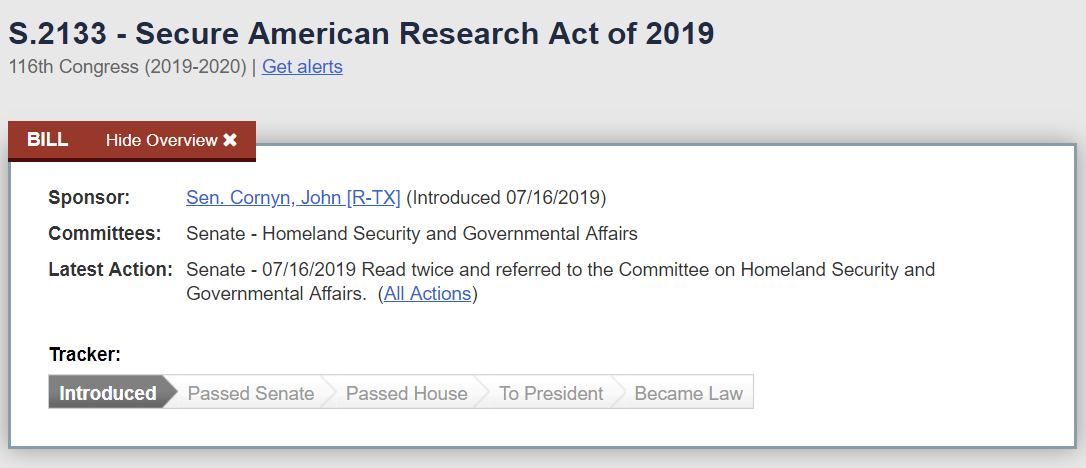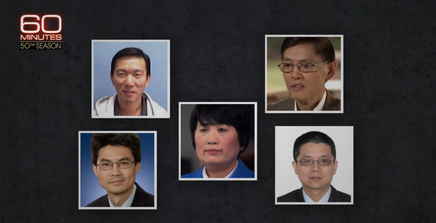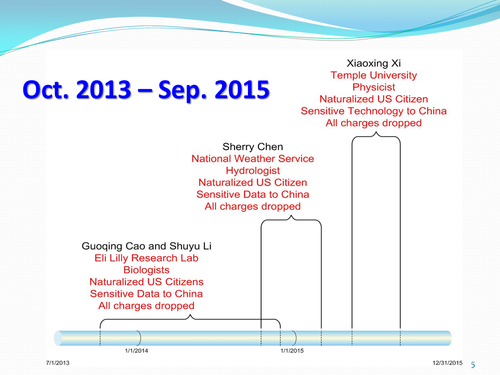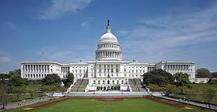Federal Government
Whistleblowing
|
Whistleblowing has a long history in the U.S. The nation has "fostered and embraced aculture of civic responsibility in order to protect and benefit the public good." Benjamin Franklin became one of the first American whistleblowers in 1773 when he exposed confidential letters showing that the royally appointed governor of Massachusetts had intentionally misled Parliament to promote a military buildup in the Colonies.
However, whistleblowers face retaliation from job loss, lawsuits to even prison. The Whistleblower Protection Act of 1989, as amended, is a U.S. law that protects federal whistleblowers who work for the government and report the possible existence of an activity constituting a violation of law, rules, or regulations, or mismanagement, gross waste of funds, abuse of authority or a substantial and specific danger to public health and safety. Identical bills were introduced in the House and Senate on January 5, 1989 and signed into law on April 10, 1989. In 2018, the U.S. Senate unanimously passed a resolution to mark July 30 as the National Whistleblower Appreciation Day. The Sherry Chen Legal Defense Fund turned over a whistleblower letter to the DOC Inspector General office atthe Department of Commerce on August 15, 2018, The Inspector General investigation was assigned a tracking number of 18-0999. Links Whistleblowers International: What is whistleblowing? Society of Professional Journalists: The Whistleblower Project Michael German: Disrupt, Discredit, and Divide: How the New FBI Damages Democracy 2019/09/25 NPR: 'Whistleblowing Is Really In Our DNA': A History Of Reporting Wrongdoing |
"Malign Foriegn Government Talent Recruitment Program"
The Bipartisan Innovation Act is the bill merging the House's America COMPETES Act and the Senate's USICA. On April 6, 2022, the White House announced a bipartisan and bicameral Congressional briefing to discuss the urgent need to invest in made-in-America semiconductors as well as research and development that will protect our economic and national security: https://bit.ly/3rhJtea.
The America COMPETES bill was passed by the House on February 4, 2022. It has 3,610 pages: https://bit.ly/3vlzeXL. Pages 670-674 covers Subtitle E—Malign Foreign Talent Recruitment Program Prohibition and SEC. 10651. Malign Foreign Talent Recruitment Program Prohibition.
The Senate passed its revised USICA on March 28, 2022. That bill has 2,326 pages: https://bit.ly/3M32KIh. Pages 263-267 covers Section 2303. Foreign Government Talent Recruitment Program Prohibition.
The America COMPETES bill was passed by the House on February 4, 2022. It has 3,610 pages: https://bit.ly/3vlzeXL. Pages 670-674 covers Subtitle E—Malign Foreign Talent Recruitment Program Prohibition and SEC. 10651. Malign Foreign Talent Recruitment Program Prohibition.
The Senate passed its revised USICA on March 28, 2022. That bill has 2,326 pages: https://bit.ly/3M32KIh. Pages 263-267 covers Section 2303. Foreign Government Talent Recruitment Program Prohibition.
|
Legislative Alert

H.R. 3038 Securing American Science and Technology Act of 2019 was introduced by Rep. Mikie Sherrill (D-NJ) on May 30, 2019. It has 33 bipartisan co-sponsors (17 D and 16 R). According to Science, this bill has been folded into H.R. 2500 National Defense Authorization Act for Fiscal Year 2020 (NDAA), which passed the House with a 220 - 197 margin on July 12.
The Senate version of the NDAA, S. 1790 passed earlier on June 27, 2019 with a margin 86-8. Its difference with the House will be resolved in conference. S. 2133 Secure American Research Act of 2019 was introduced by Sen. John Cornyn (R-TX) on July 16, 2019. It has 7 co-sponsors (4 R and 3 D). H.R. 2133 and H.R. 2500 are listed as related bills. Section 2.(3).F of S. 2133 reads as follows: "(F) develop and ensure the implementation of a means for Federal agencies listed in paragraph (2)(A) to aggregate and share Federal agency information regarding completed investigations of researchers that were determined to be knowingly fraudulent in disclosure of foreign interests, investments, or involvement relating to Federal research, which shall-- (i) be shared among agencies listed in paragraph (2)(A); (ii) not be made available to the public; and (iii) not be subject to the requirements of section 552 of title 5, United States Code (commonly known as the “Freedom of Information Act”);" |
立法警报
2019年5月30日,众议员Mikie Sherrill(民主党-新泽西州)提出H.R.3038 《保障美国2019年科学技术法案》。两党共33个众议员联名提案(17名民主党议员和16个共和党)。据《科学》杂志报道,该法案已被纳入H.R.2500 《2020财年国防授权法案》(NDAA),并于7月12日在众议院以220票对197票通过。
参议院早于2019年6月27日以86-8票通过它的S.1790《2020财年国防授权法案》。它与众议院版本的分歧将会以協商会议解决 2019年7月16日,参议员John Cornyn(共和党-德州)提出 S.2133 《保卫美国科研法案》。它共有7个参议员联名提案(4名共和党和3名民主党)。H.R. 2133和H.R. 2500 被列为相关法案。S.2133 2.(3).F 原文如下: "(F) 开发和确保一种方法,以提供法案(2)(A)所列各联邦机构之间汇聚和分享对有关科研人员已完成调查並确定故意向外国透露信息,投资,或对联邦科研有欺诈行为的信息。这些信息应该: (i) 在(2)(A)所列机构之间分享; (ii) 不向公众开放;和 (III) 不受《美国法典》第5章第552节(通常称为《信息自由法》)的规定约束;" |
|
2019/09/04 Newsweek: U.S. Federal Judge Rules Terrorist Watchlist Is Unconstitutional
2019/09/04 AP: US judge: Terror watchlist violates constitutional rights 2019/09/04 New York Times: Judge Rules Terrorism Watchlist Violates Constitutional Rights Wikipedia: Terrorist Screening Database |
Individual Victims
|
Sherry Chen
Sherry Chen won a blockbuster decision at the Merit Systems Protection Board (MSPB) by getting reinstated to her position with back pay and benefits on April 23, 2018. The presiding MSPB judge agreed that Sherry Chen was a victim of "gross injustice."
However, the Department of Commerce (DOC) appealed the MSPB decision, and Sherry Chen has filed a cross-appeal. The written arguments from both sides were completed on August 28, 2018. The next step is for MSPB to review and decide on the petitions, which requires a quorum of at least two members. MSPB currently has one. Three individuals were nominated to MSPB in 2018, but they were not confirmed by the Senate. The backlog of appeals in MSPB has grown to more than 1,600 cases at the end of 2018. A whistleblower letter was turned over to the Inspector General Office (IG) at DOC on August 15, 2018. The whistleblower letter alleges abuse of authority and targeting of Sherry Chen and employees of Asian ancestry in DOC. It provides the identity of offices, individual names, and specific incidents. The IG has assigned a complaint number: 18-0999. Sherry Chen's legal team filed an amended complaint in Jnauary 2019. |
Xiaoxing Xi
Xiaoxing Xi returned to active duty in Temple University as Laura H. Carnell Professor of Physics after his case was dropped on September 11, 2015. He filed a lawsuit in May 2017, alleging that U.S. counterintelligence investigators targeted him because of his ethnicity and willfully misinterpreted evidence to fit a false narrative that he stole secrets from a U.S. company. His family joined the lawsuit tw months later in July 2017. The American Civil Liberties Union (ACLU) announced in April 2018 that it has filed an amended complaint to Civil Action No. 17-cv-2132. ACLU will represent the Xi family in the lawsuit. The named defendants are FBI Special Agents, Director of the FBI, U.S. Attorney General, and Director of the National Security Agency and Chief of the Central Security Service. The case is pending at the Eastern District Court of Pennsylvania.
Yanping Chen
According to the National Law Journal, Dr. Yanping Chen, a naturalized American citizen, filed a federal lawsuit (Case 1:18-cv-03074) in the District of Columbia on December 21, 2018. It names the FBI, Department of Justice, Department of Defense, and the Department of Homeland Security as defendants. The complaint alleges one or several members of the agencies violated the Privacy Act by leaking information about Dr. Chen to Fox News.
|
|
NIH, NSF and FBI Collaboration
Dr. Francis Collins, Director of the National Institute of Health (NIH), testified that foreign scientists who received funding from the NIH at 55 U.S. institutions are under investigation in an April 11, 2019 Senate Appropriations Committee hearing. According to Editage Insights, several members of the scientific community have expressed concerns about these unprecedented inquiries and unfair targeting of honest researchers.
According to Science on May 30, 2109, MD Anderson, which worked closely with the Federal Bureau of Investigation (FBI) on apparently related inquiries that preceded the NIH letters by at least 8 months, was the first institution publicly known to have disciplined researchers identified by NIH. It was followed by the firing of two Chinese American professors by the Emory University School of Medicine on May 23, 2019. The professors have contended that the adverse action was taken without due process to defend themselves. On June 5, 2019, Dr. Lawrence Tabak, Principal Deputy Director of NIH testified in a Senate Finance Committee hearing. It was reported that NIH has referred 16 allegations related to foreign influence of U.S.-funded research to investigators and contacted 61 research institutions about such concerns. On July 11, 2019, Director France Córdova of the National Science Foundation (NSF) issued a "Dear Colleague" letter warning about "emerging risks to the nation's science and engineering enterprise" and NSF is taking multiple steps to mitigate these risks in concert with other agencies and stakeholders, including the prohibition of NSF and IPAs detailed to NSF from participating in foreign government talent recruitment programs. We are following these and other developments under Current State. Visa and Entry Denials
2019/08/31 USA Today: 9 Arizona State students from China detained at LA airport, denied admission to U.S.
|
Protecting Trade Secrets or Something Else?
Former Waymo and Uber self-driving car engineer Anthony Levandowski, a 39-years-old dual US-French citizen, was indicted August 27, 2019 on 33 federal charges of theft and attempted theft of trade secrets.
The case drew instant media coverage. Questions were raised about the meaning of "trade secrets" and the history of innovation. A New Yorker report described the government as a "willing enforcer" on behalf of the tech giants to use the Economic Espionage Act to inhibit employment mobility. "The law was mostly intended to be used against overseas saboteurs, but it has largely been directed at American citizens—and, in effect, has made federal prosecutors into heavies operating on behalf of disgruntled tech firms," the New Yorker article said. This case may have significant impact on Chinese Americans scientists. 2019/08/29 Bloomberg: Uber CEO Says It ‘Sure Looked Like’ Levandowski Took Google's Files 2019/08/29 WIRED: Levandowski’s Fate May Turn on the Meaning of ‘Trade Secret’ 2019/08/28 New Yorker: How the Anthony Levandowski Indictment Helps Big Tech Stifle Innovation in Silicon Valley 2019/08/27 WIRED: Ex-Uber Engineer Levandowski Charged With Trade-Secret Theft 2019/08/27 New York Times: Former Star Google and Uber Engineer Charged With Theft of Trade Secrets 2019/08/27 Department of Justice: Former Uber Self-Driving Car Executive Indicted For Alleged Theft Of Trade Secrets From Google 2019/08/15 Indictment |
|
Economic Espionage Act Prosecutions
Every known prosecution of economic espionage and theft of trade secret cases under or related to the Economic Espionage Act since its enactment in 1996 is tracked and updated here. Scholar Andrew Kim wrote a white paper titled Prosecuting Chinese "Spies:" An empirical Analysis of The Economic Espionage Act in May 2017. Although not conclusive, this study finds evidence consistent with concerns that the Department of Justice investigations of suspected espionage have been infected by racial biases.
2020 Census
April 1, 2020 is the next census day. On March 29, 2018, the Census Bureau announced the last-minuite inclusion of a citizenship question and the use of administrative records in the 2020 Census. The decisions, made by Commerce Secretary Ross, will have adverse impacts on the immigrant communities including Asian Americans, as well as profound long-term effects on the privacy rights for all Americans. Three U.S. District Court judges ruled against the addition of the citizenship question. The Supreme Court ruled to block the citizenship question in the 2020 Census on June 27, 2019. However, there are continuing developments with an executive order to integrate administrative data with the census results. More at 2020 Census.
National Insider Threat
In October 2011, the president issued Executive Order 13587 establishing the National Insider Threat Task Force (NITTF) under joint leadership of the Attorney General and the Director of National Intelligence.
Do the subsequent insider threat programs treat and have disparate impact on Asian American federal employees in national defense and intelligence, law enforcement, foreign affairs, and related sensitive areas in terms of security clearance, job assignments, career advancement, adverse actions, appeal rights and similar issues? 2019/05/29 New York Times: Women Sue FBI, Claiming Discrimination at Training Academy 2016/12/22 Fox News: Attorney: FBI singling out Chinese-Americans with insider-threat program 2015/01/03 Reappropriate: Are FBI & State Dept blacklisting Asian American and Muslim employees? 2013/09/24 Washington Post: At the State Department, diversity can count against you Military-Security-Industry Complex
"Eisenhower was concerned about the potential influence of industry over government policy and budgets. Since then, analysts and pundits have used the term to suggest that arms manufacturers unduly influence lawmakers in voting on the size and nature of military spending, including decisions about war and peace." The modern-day addtion is cybersecurity.
2019/06/26 Washington Post: Eisenhower called it the ‘military-industrial complex.’ It’s vastly bigger now |
FBI Publicity Campaign
Legislations such as the John McCain National Defense Authorization Act for FY2019 create the threat of sanctions for acamedic members, reserachers and contractors who are associated with Chinese “talent recruitment programs." The foremost, but not the only, of the Chinese talent recruitment programs is called the “Thousand Talents Program," created in 2008 to develop its capacity for research in critical technology areas in China.
Beginning in 2015, the FBI started a "Company Man" nationwide publicity campaign to "raise awareness about economic espionage." Accroding to the FBI, economic espionage and trade secret crimes are covered under the Economic Espionage Act. In one year, FBI reportedly provided more than 1,300 in-person briefings on the economic espionage threat to companies and industry leaders. On February 13, 2018, FBI Director Christopher Wray testified in the Senate Intelligence Committee and called for a "whole-of-society response" to China. A coalition of 14 Asian American organizations wrote an open letter to and requested a dialogue with the FBI Director, but to no avail. According to the Houston Chronicle, the FBI started to meet with academic and research institutions in Houston on August 9, 2018. A Texas Tech University memorandum stated that "the State Department and the FBI believe elements of the Thousand Talents Program are closely allied to the Chinese military." The FBI has also produced this document titled "China: The Risk to Academia." Department of Justice's "China Initiative"
On November 1, 2018, officials at the U.S. Department of Justice (DOJ) and the FBI announced the creation of a new “China Initiative.”
The stated purpose of the China Initiative is to “identify priority Chinese trade theft cases, ensure that we have enough resources dedicated to them, and make sure that we bring them to an appropriate conclusion quickly and effectively.” 2019/07/11 JDSupra: Six-Month Update: “China Initiative” on Criminal Trade Secret Theft (中文版) Department of Commerce Entity List
.The Entity List maintained by the Bureau of Industry and Security under the Department of Commerce identifies "entities reasonably believed to be involved, or to pose a significant risk of being or becoming involved, in activities contrary to the national security or foreign policy interests of the United States." The latest additions of 44 Chinese Entities and Institutions are reported in the Federal Register on August 1, 2018.
On May 16, 2019, the Department of Commerce announced adding Huawei Technologies Co., Ltd. (Huawei) to the Entity List. Update on August 19, 2019. On January 17, 2020, the Department of Justice released updated export control and sanctions voluntary disclosure policy. |
Congress
Inspector General Investigations
On May 23, 2018, the Congressional Asian Pacific American Caucus (CAPAC) sent a letter to the Inspector General at the Department of Commerce (DOC), and requested a full and independent imvestigation into the action taken by DOC in the case of Sherry Chen. Referencing the Merit Systems Protection Board (MSPB) decision, CAPAC asked the DOC Inspector General to look into three areas: (a) Fraudulent actions, (b) Abuse of authority, and (c) Misconduct/Mismanagement. Thirty one (31) members of Congress signed the joint letter.
On June 5, 2018, the Sherry Chen Legal Defense Fund sent a letter to the DOC Inspector General, requesting a supplemental area of investigation on (d) the economy and efficiency of the adverse actions taken by DOC against Sherry Chen. The Fund also turned over a whistleblower letter to the DOC Inspector General office on August 15, 2018, The Inspector General investigation was assigned a tracking number of 18-0999.
On June 5, 2018, the Sherry Chen Legal Defense Fund sent a letter to the DOC Inspector General, requesting a supplemental area of investigation on (d) the economy and efficiency of the adverse actions taken by DOC against Sherry Chen. The Fund also turned over a whistleblower letter to the DOC Inspector General office on August 15, 2018, The Inspector General investigation was assigned a tracking number of 18-0999.
Legislative Bills
|
H.R. 4339 End Racial Profiling Act of 2019 and S. 2355 End Racial and Religious Profiling Act of 2019. These bills were introduced on September 16 and July 31, 2019 respectively to "eliminate racial, (religious,) and other discriminatory profiling by law enforcement, and for other purposes." The term "racial profiling" is defined in both bills although slightly different in language.
H.R. 3494, also known as The National Intelligence Authorization Act for 2018-2020, was introduced by Rep. Adam Schiff (D-CA) on June 26, 2019. Rep. Ed Case (D-HI) introduced an amendement to the House bill on July 10 as Section 708 to the House bill with the title of REPORT ON BEST PRACTICES TO PROTECT PRIVACY AND CIVIL LIBERTIES OF CHINESE AMERICANS. The House passed H.R. 3494, including the Case amendment, on July 17 by a vote of 397-31. It was referred to the Senate on July 18. The Senate version is S. 1589. This media report provides more descriptions of the bill and the Case amendment. The Congressional Asian Pacific American Caucus (CAPAC) issued a statement: CAPAC Members Applaud Successful Passage of Amendment to Address Racial Profiling of Chinese Americans. Another media report describes the push to change security clearance policies that may have impact on Asian American federal employees. H.R. 3038 Securing American Science and Technology Act of 2019 was introduced by Rep. Mikie Sherrill (D-NJ) on May 30, 2019. It currently has 33 bipartisan co-sponsors (17 D and 16 R). According to Science, this bill has been folded into H.R. 2500 National Defense Authorization Act for Fiscal Year 2020 (NDAA), which passed the House with a 220 - 197 margin on July 12. The Senate version of the NDAA, S. 1790, was passed on June 27. S. 2133 Secure American Research Act of 2019 was introduced as a companion bill to H.R. 3038 by Sen. John Cornyn (R-TX) on July 16, 2019. It has 7 co-sponsors (4 R and 3 D). An alert is issued for its provision of a secret blacklist under Section 2.(3).F of S. 2133. H.R. 1678 Protect Our Universities Act of 2019 and S. 1879 Protect Our Universities Act of 2019 were intoduced in March and June 2019 respectively. The stated purpose is "to create a task force within the Department of Education to address the threat of foreign government influence and threats to academic research integrity on college campuses, and for other purposes." S. 1451 People’s Liberation Army (PLA) Visa Security Act and H.R. 2713 People's Liberation Army (PLA) Visa Security Act were both introduced in the Senate and the House on May 14, 2019 with stated purpose to To prohibit the issuance of F or J visas to researchers affiliated with the Chinese People’s Liberation Army. H.R.6391 - Merit Systems Protection Board Reauthorization Act of 2018. H.R. 6391 was introduced on July 16, 2018. The stated purpose is to reauthorize and modify the authority of the Merit Systems Protection Board. According to FEDWeek and Government Executive, this bill would reauthorize the independent agency for five years, following more than a decade of operation since its previous authorization expired in 2007. It also would allow MSPB judges to issue summary judgments, reduce the evidentiary burden for agencies to justify adverse personnel actions from “a preponderance of the evidence” to “substantial evidence,” and it would require federal workers to pay a filing fee to appeal adverse personnel actions. H.R. 559 MERIT Act of 2017 and S. 3200 MERIT Act of 2018. H.R. 559 was introduced on January 13, 2017 and S. 3200 on July 12, 2018. According to FEDWeek and Government Executive, this bill would shorten the notice, response, final agency decision and appeal timeframes, allow performance-based discipline without a performance improvement period, exclude from negotiated grievance-arbitration procedures cases involving discipline or RIFs, and allow an agency to claw back a bonus already paid after learning later of performance or misconduct problems during the time the bonus covers. S. 2903 and H.R. 6821 - Stop Higher Education Espionage and Theft Act of 2018. S.2903 was introduced on May 22, 2018 and referred to the Senate Judiciary Committee. H.R. 6821 is an identical bill introduced and referred to multiple committees on September 13, 2018. The stated purpose is "to address foreign threats to higher education in the United States." On June 8, 2018, OCA produced a Summary of the Stop Higher Education Espionage and Theft Act of 2018. 2019/06/19 Inside Higher Ed: Bills Target Academic Espionage 2019/06/06 South China Morning Post: US lawmakers target Chinese as potential campus spy threats 2019/05/30 Association of American Universities: Joint Support Letter to Securing American Science and Technology Act of 2019 Expiring Legislative Authority
Three Foreign Intelligence Surveillance Act authorities will be sunsetting on December 15, 2019. Section 215 of the USA Patriot Act of 2001, FISA Section 501, or 50 U.S.C. §1861, authorizes the Foreign Intelligence Surveillance Court, or FISC, to issue an order for third parties to produce specific “tangible things (including books, records, papers, document, and other items)” when the FBI has made certain showings. It may be most famously used for bulk telephone metadata collection as Edward Snowden revealed. Over 534 million phone records were reportedly collected by the National Security Agency (NSA) in 2017 alone. The Washington Post reported on March 5, 2019 that NSA itself has doubts about the utility of such massively collected data.
A group of progressive and grassroots organizations urge House leadership in a joint letter not to reauthorize the continued mass surveillance of innocent people under that authority. The Fourth Amendment Advisory Committee held a panel discussion on February 26 on what Congress and the public should know about Section 215 and what they need to find out before it comes up for reauthorization. |
AAJA Media Watch
|
The Asian American Journalists Association (AAJA) MediaWatch holds news media organizations accountable to standards of accuracy and fairness in the coverage of Asian Americans and Pacific Islanders and AAPI issues.
Reports and updates are posted at https://www.aaja.org/mediawatch See something about media bias against Asian Americans, do something by reporting them to AAJA MediaWatch at https://www.facebook.com/groups/AAJAMediaWatch/ Sample Incident
On August 8, 2018, the Washington Post reported an incident about a Rogue message in Chinese broadcast over intercom at a National Weather Service center. Without supporting evidence, the report included a suggestive paragraph about a hacking attack from China.
Xenophobic innuendo and racial profiling directly and indirectly led to the persecution of Sherry Chen, an award-winning hydrologist at the National Weather Service, and placed a cloud of suspicion and fear on Asian American federal employees. Although The Post updated the report the next day, the story had already been picked up by other news media including Fox News. As it turned out, it was a scam robocall that has been victimizing people for months, and the Chinese Embassy and the Federal Trade Commission have been working to rectify the scam. |




